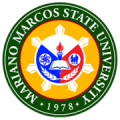
MMSU-assisted communities in Aparri, now earning from nipa-based products
By Dana Meryll Gapas
As local communities in Aparri begin earning from nipa-based products developed by Mariano Marcos State University (MMSU), the university entered into a new memorandum of agreement (MoA) with the Municipal Government of Aparri and two technology takers on March 12 via Zoom.
Committed to the marketing and promotion of nipa-based products, the university will assist the Municipality of Aparri, the 3K’s Association, and the KKK Consumer’s Cooperative in increasing the earnings of nipa farmers.
The new MoA was signed by MMSU President Virgilio Julius P. Manzano, Jr., Aparri Mayor Bryan Dale Chan, and technology taker presidents Ms. Leah Saboya of the 3K’s Association and Mr. Lito Kalawan of the KKK Consumer’s Cooperative.
Before the signing, the MMSU National Bioenergy Research and Innovation Center (NBERIC) facilitated the registration of the KKS Consumer’s Cooperative with the Cooperative Development Authority Region 2.
Additionally, capacity-building activities such as seminars and training sessions on product development and profit optimization have been conducted to assist Aparri’s nipa farmers in improving their production and increasing their earnings.
With the new collaboration, NBERIC—under the leadership of Dr. James Paul Madigal—will continue to provide extension services, technical assistance, and training for nipa farmers on bioethanol production, management practices, and nipa-based product development.
In return, the LGU of Aparri will spearhead the marketing and promotion of nipa-based products produced by the technology takers. The LGU will also assist in enhancing product quality, improving supply, and addressing operational challenges.
According to Prof. Marjorie Garcia, NBERIC’s Socioeconomic, Technopreneurship, and Partnership Section Chief, the partnership will empower Aparri and the technology takers to pursue business development and increase their income.
Mayor Chan noted that while Aparri may not have abundant natural resources compared to other municipalities, it is rich in renewable energy. He expressed optimism that the project will evolve into a sustainable energy source, creating more employment opportunities for the community.
Meanwhile, MMSU President Manzano emphasized that the university’s research and extension initiatives will directly benefit local enterprises, with technology users taking the lead in implementing these innovations.
“MMSU is committed to making research accessible and practical. By combining expertise in bioenergy, strong governance, and community-driven action, this partnership will create a lasting impact,” Dr. Manzano said.
The initiative also aligns with the government’s objectives of reducing dependence on imported fuels, protecting public health and the environment, mitigating greenhouse gas emissions, and promoting rural employment and income.
Bioethanol production remains a key focus in the energy sector, as highlighted by Republic Act 9367, or the Biofuels Act of 2006. For 18 years, MMSU has continued to advance this initiative—from its humble beginnings with limited resources, manpower, and partnerships—to a thriving production sector under the leadership of former university president Dr. Shirley Agrupis.
Gallery

Dear Valued Client,
We will be introducing our newly upgraded website on October 31, 2024 – offering faster access, improved navigation, and enriched content for students, faculty, partners, and stakeholders. Experience how we cultivate minds and transform futures at MMSU.

 CAFSD
CAFSD CASAT
CASAT CAS
CAS CBEA
CBEA CCIS
CCIS COE
COE CHS
CHS CIT
CIT CTE
CTE COM
COM CVM
CVM Graduate School
Graduate School




